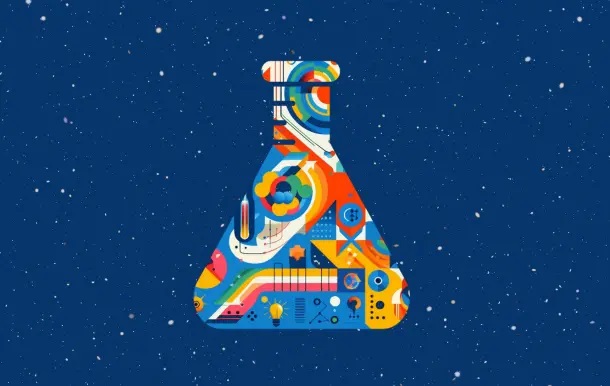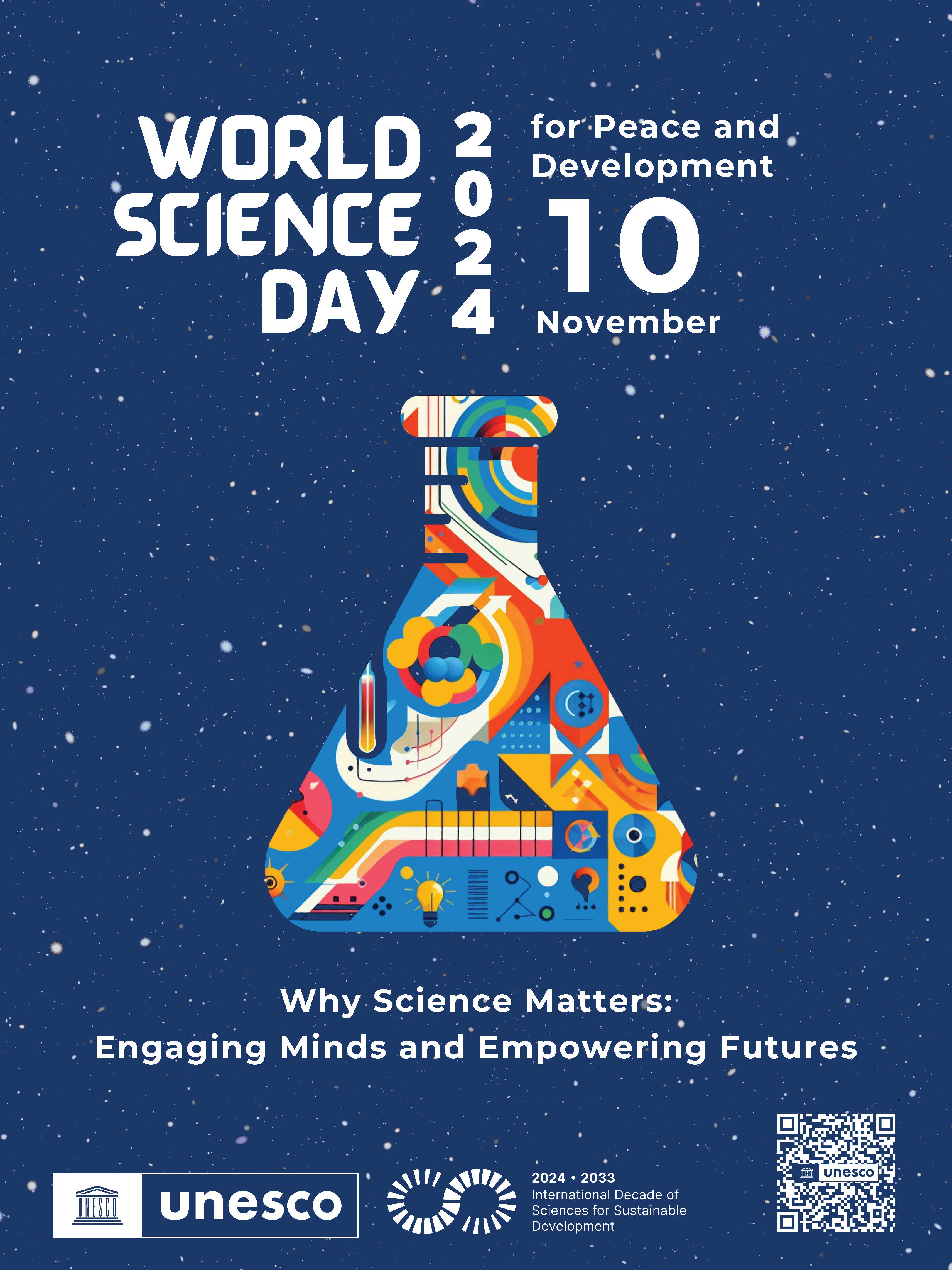Celebrated every 10 November, World Science Day for Peace and Development highlights the significant role of science in society and the need to engage the wider public in debates on emerging scientific issues. It also underlines the importance and relevance of science in our daily lives.
By linking science more closely with society, World Science Day for Peace and Development aims to ensure that citizens are kept informed of developments in science. It also underscores the role scientists play in broadening our understanding of the remarkable, fragile planet we call home and in making our societies more sustainable.
The Day offers the opportunity to mobilize all actors around the topic of science for peace and development – from government officials to the media to school pupils. UNESCO strongly encourages all to join in celebrating World Science Day for Peace and Development by organizing your own event or activity on the day.
2024 Theme: Youth at the forefront
This year’s World Science Day for Peace and Development will be held under the aegis of the International Decade of Sciences for Sustainable Development ( 2024-2033). It will present an opportunity to engage a wide-range audience, with a focus on young people and non-scientific participants in discovering and exploring the role of science in our rapidly-changing digitalized world. Young people will have the opportunity to ask questions to distinguished scientists about the ways in which science affects our daily lives and contributes to finding solutions to the most pressing challenges that the world is facing from local to global levels.
Event: Why Science Matters - Engaging Minds and Empowering Futures
Date & Time: 12 November 2024, 2:00 pm – 3:30 pm (Paris time)
Location: Room XI, UNESCO Headquarters, Paris, France
As part of this year’s World Science Day for Peace and Development celebrations, UNESCO is organizing a webinar with specialists to showcase the crucial role of science in both society and our everyday lives. More information
Background
The organization of a focused event related to the commitment to science and society was one of the positive outcomes of the 1999 World Conference on Science in Budapest. It was considered an opportunity to reaffirm each year the commitment to attaining the goals proclaimed in the Declaration on Science and the Use of Scientific Knowledge and to follow up the recommendations of the Science Agenda: Framework for Action.
Since its proclamation by UNESCO in 2001, World Science Day for Peace and Development has generated many concrete projects, programmes and funding for science around the world. The Day has also helped foster cooperation between scientists living in regions marred by conflict - one example being the UNESCO-supported creation of the Israeli-Palestinian Science Organization (IPSO).
The rationale of celebrating a World Science Day for Peace and Development has its roots in the importance of the role of science and scientists for sustainable societies and in the need to inform and involve citizens in science. In this sense, a World Science Day for Peace and Development offers an opportunity to show the general public the relevance of science in their lives and to engage them in discussions. Such a venture also brings a unique perspective to the global search for peace and development.
The first World Science Day for Peace and Development was celebrated worldwide on 10 November 2002 under UNESCO auspices. The celebration involved many partners, such as governmental, intergovernmental and non-governmental organizations, UNESCO National Commissions, scientific and research institutions, professional associations, the media, science teachers and schools.
In August 2023, the United Nations General Assembly (UNGA) proclaimed the period 2024-2033 as the International Decade of Sciences for Sustainable Development. This marks an important step in global efforts to harness scientific knowledge for a sustainable future. Led by UNESCO, this Decade aims to mobilize a wide range of scientific disciplines, including basic and applied sciences, social and human sciences, as well as interdisciplinary and emerging fields, to contribute to transformative change in societies, economies, and the environment. By promoting scientific literacy and encouraging collaboration among governments, UN agencies, the private sector and civil society, the Decade seeks to enhance science’s role in pursuing sustainable development goals and working towards a safer, more prosperous future for all.
The Day aims to:
- Strengthen public awareness of the role of science for peaceful and sustainable societies;
- Promote national and international solidarity for shared science between countries;
- Renew national and international commitment for the use of science for the benefit of societies;
- Draw attention to the challenges faced by science in raising support for the scientific endeavour.
Artificial Intelligence and Development
Science and technology have had an undeniable impact on improving living standards and increasing productivity. With the rapid technological advancement of recent years, computers are increasingly encroaching on domains that were previously considered exclusively human.
Useful Links
Related Observances
- International Day of Women and Girls in Science (11 February)
- International Day of Sport for Development and Peace (6 April)
- International Day of Human Space Flight (12 April)
- International Year of Creative Economy for Sustainable Development (2021)
- International Year of Light and Light-based Technologies (2015)
- International Year of Chemistry (2011)
- International Year of Astronomy (2009)
- International Year of Basic Sciences for Sustainable Development(2022)
- United Nations Decade of Ocean Science for Sustainable Development (2021–2030)






